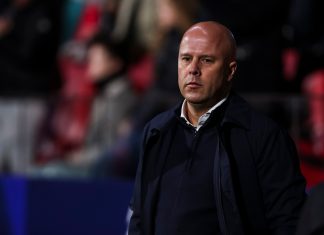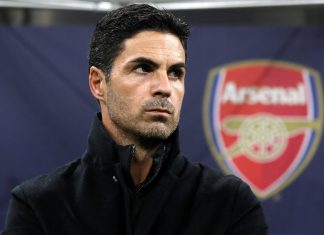This is the beginning of the end of his time at the club. That is because this is the way it always begins. The end, that is.
O’Neill is a good manager, able to get the best out of his players, inspire them, motivate them. Perhaps most importantly, make them believe they can be better than the sum of their parts.
It is just as well though, as the Northern Irishman seems averse to signing top quality players, and instead seems to prefer second rank stars such as Fletcher. This is not a slight at the Scot. Fletcher is a good player. But he is hardly top class, and he is not the sort of player a top team would buy. He is the sort of player an ambitious but limited team would buy. And at £12 million, hugely expensive Exactly O’Neill’s type.
O’Neill is very ambitious, but always fails to really reach the heights because he has too pragmatic an approach to the game. Fletcher is the second signing, after Carlos Cuellar, this summer. Cuellar is another typical O’Neill signing. Like Curtis Davies, Neil Young, Habib Beye, Nigel Reo Coker and the host of very average players on wages far higher than they deserve at Aston Villa.
O’Neill is going against all the trends in football right now. Most teams are going for young, ambitious managers who like to play passing, attractive, attacking football. Most teams are looking for value in the market, to reduce their wage bill.
In signing Fletcher, Sunderland are gearing themselves up for further wage inflation and direct football. James McLean will surely be sent down the wings at every opportunity to cross the ball into Fletcher. Hopefully he will head home, or at worst, head down for Stephane Sessegnon to fire in.
It is direct, it is crude, but it is effective. Until the point at which Sunderland will reach their peak, their maximum level. Maybe eighth place. At that point, O’Neill will encounter the same problem he always does. Having realised the team’s maximum potential under his leadership and exhausted the club’s finances, he will demand more money, be turned down, and leave. That is precisely what happened at Aston Villa. He took an average team, made them play very direct football, and left when they could get no better and the best players started leaving for teams with a genuine hope of winning something.
So this should be a warning to Sunderland and their fans. This is what O’Neill does. He maximises a team’s potential with his limited idea of the type of player he wants to sign. Players with creativity and skill are not trusted, for their daring approach risks upsetting the planned route O’Neil likes to take. Dare anyone score a goal which he did not plan himself. Like Tony Pulis, O’Neill is fighting against the grain and going against every trend in football right now. It will achieve mid table solidity, and will infuriate some big teams in individual matches. But Fletcher’s signing is the beginning of the end for Sunderland. And it may be a long end, too.







